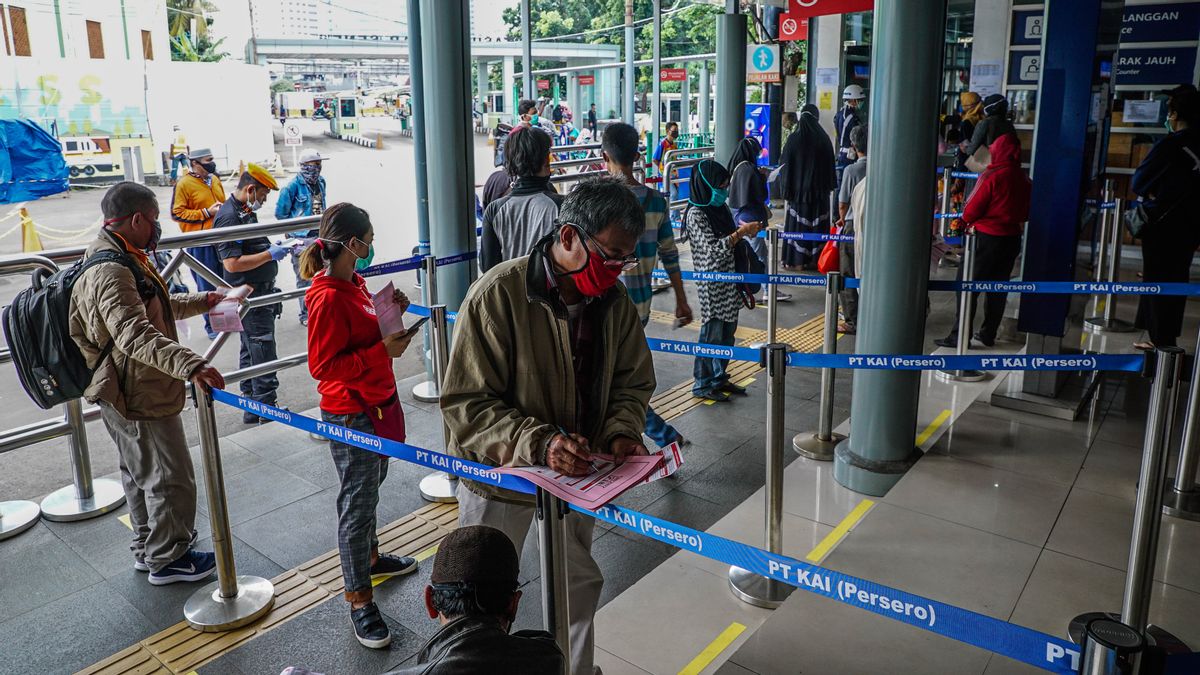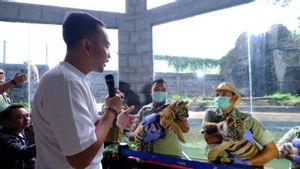JAKARTA - The government has indeed not issued a ban on people who want to return to their hometowns during the COVID-19 pandemic. However, please note, there is a big risk behind going home. First, for the travelers. Then, there are risks to the family and the surrounding community in their hometown. In this article, we will dive into the first one. Hopefully enough to get you settled wherever you are.
Spokesperson for the COVID-19 Task Force Achmad Yurianto said the greatest potential for transmission occurs on the way. On that occasion, the travelers will meet many people whose health background is unknown. Keep in mind, in COVID-19, many people are actually infected but don't show symptoms.
"We said that the risk is too high if we have to travel in a situation like this (the COVID-19 pandemic)," said Yuri at Graha BNPB, Monday, April 6.
Yuri continued, in terms of location, the most vulnerable points of transmission were terminals or stations that were crowded with many people. Then, the conditions in the public transportation itself, whether trains or city buses. Bus, for example. These vehicles are normally enclosed and equipped with air conditioning, two factors that add to the risk. The reason is that the air circulation in the bus will not change, it only rotates inside.
"Say someone else gets sick, coughs (and) hits a chair or seat or so. (Unintentionally) we hold it, it is very possible that we are at risk of contracting it. This is what is important," said Yuri.

For this reason, it is highly recommended that you refrain from returning to your hometown so that you can break the chain of spreading COVID-19. However, for those who have already gone home, it is obligatory for them to carry out independent isolation when they arrive at their destination.
Then, always keep your distance from other family members and remember to always wash your hands or keep clean. However, when health symptoms appear, you should immediately check your health or body condition. By implementing it, at least it can prevent the continued transmission.
"It remains that if anyone later does, he or she is forced to travel, so, what must be done is to maintain a distance in communicating. Please, if you are already in the village, keep your distance. While not shaking hands, wash your hands diligently," said Yuri.
Previously reported, the government ensures that it will not issue a ban on people who will return to their hometowns in order to welcome Eid Al-Fitr 2020. Even though there is no prohibition, those who still choose to go home must carry out independent isolation after arriving at their hometown for a period of 14 days as recommended by the World Health Organization (WHO).
"President Joko Widodo emphasized that there is no official prohibition for Idul Fitri 2020 M / 1441 H travelers. However, travelers are required to be self-isolated for 14 days and have the status of People Under Monitoring (ODP)," Presidential Spokesman Fadjroel Rachman said in a written statement to journalists. , Thursday, April 2.
Supervision of travelers with ODP status must also be carried out by the local government and are deemed to be in accordance with Government Regulation Number 21/2020 concerning Large-Scale Social Restrictions (PSBB) for the Acceleration of Handling COVID-19. However, the government will carry out a comprehensive campaign so that people do not go home. This campaign, said Fadjroel, will involve community leaders, religious leaders and public figures.
It is believed, this kind of campaign will prevent people from carrying out homecoming so that the spread of the corona virus does not occur massively. Given, from the Ministry of Home Affairs data in 2019, the number of travelers in Indonesia reached 20,118,531 people and the most destinations were Central Java, West Java, East Java and other areas. "President Joko Widodo also reminded the destination regional governments to make special policies related to these travelers according to WHO health protocols very strictly," he said.
The English, Chinese, Japanese, Arabic, and French versions are automatically generated by the AI. So there may still be inaccuracies in translating, please always see Indonesian as our main language. (system supported by DigitalSiber.id)








